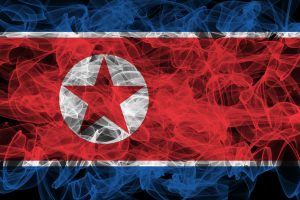North Korea fired about 100 artillery shells around 12:30 p.m. on Wednesday from the Yonan area of southwestern South Hwanghae Province, South Korea’s Joint Chiefs of Staff (JCS) said. The shells fell inside the maritime buffer zone that was installed in the wake of the inter-Korean summit between then-South Korean President Moon Jae-in and the North’s supreme leader Kim Jong Un in September 2018.
The South’s JCS called the North’s artillery fire “a violation of the 9/19 military agreement,” which was also reached during the inter-Korean summit in September 2018. The JCS urged the North to immediately halt its ongoing provocations.
Wednesday’s artillery shots came about 14 hours after the North had fired about 250 artillery shells – 100 artillery shots fired off its west coast and 150 off its east coast – sometime after 10:00 p.m. on Tuesday. The artillery firings are a response to South Korea’s annual Hoguk exercise, which kicked off on Monday
North Korean state-controlled media Korean Central News Agency (KCNA) published two statements on the artillery firings.
In the first statement, a spokesperson for the General Staff of the Korean People’s Army (KPA) stated that South Korea had “fired dozens of shells of multiple rocket launchers in the forefront area of Cholwon County, South Kangwon Province from 9:55 to 17:22 on October 18.”
The spokesperson warned that “the situation on the Korean Peninsula is getting worse due to the enemies’ repeated military provocations in the forefront area.”
The North claimed that the South’s military exercises escalated tensions in the border area of the two Koreas. From South Korea’s perspective, its annual Hoguk military exercise had to focus on its deterrence capabilities against the North’s nuclear and missile threats after North Korea test-fired multiple ballistic missiles from its “tactical nuclear operations units” from September 25 to October 9.
Deeming South Korea’s annual military exercise as a “war drill,” the spokesperson said that the KPA fired artillery shells toward the east and west seas on Tuesday, October 18, “as a powerful military countermeasure.”
In his second statement after the North’s artillery shots on Wednesday, the spokesperson also claimed that the new round of artillery fire was also conducted as a response to the South’s “successive” military provocations carried out on Wednesday in “frontline areas.”
“Our Army strongly warns the enemy forces to immediately stop the highly irritating provocative act in the frontline areas,” the spokesperson said in his statement.
With experts expecting North Korea to conduct its seventh nuclear test at any moment, Seoul has actively responded to North Korea’s nuclear and missile threats since President Yoon Suk-yeol took office in May.
However, in the absence of room for dialogue, military tensions on the Korean Peninsula have escalated with the spate of North Korea’s ballistic missile launches this year and South Korea’s own military countermeasures. The two Koreas seemed locked into an escalation battle, vying to show off more powerful military measures against each other under the name of deterrence.
































